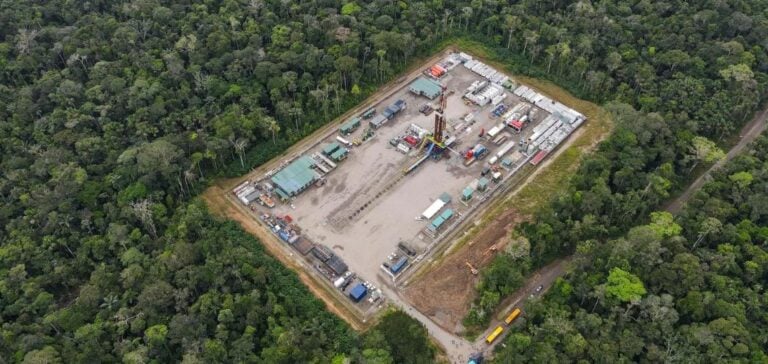Block 43: a gradual closure with far-reaching implications
In response to the August 2023 referendum, the Ecuadorian government has begun the process of closing Block 43, located in Yasuni Park.
This block accounts for a significant proportion of the country’s oil production, with over 50,000 barrels extracted daily.
The decision to halt extraction in this area, home to indigenous communities, is welcomed by conservationists, but poses considerable economic and industrial challenges for Ecuador.
The Ecuadorian authorities, led by President Daniel Noboa, are planning a gradual shutdown over five years.
This approach is dictated by the need to minimize the economic impacts, estimated at a loss of $16.47 billion over two decades, as well as to manage the environmental and legal risks associated with an abrupt cessation of operations.
Industrial stakes and transition challenges
Block 43, although covering a small area within Yasuni Park, is a mainstay of national oil production, managed by state-owned Petroecuador.
The transition to complete shutdown implies not only the cessation of current activities, but also the halting of investments in the region, notably in the Ishpingo, Tambococha and Tiputini (ITT) fields.
Energy Minister Antonio Goncalves stated that this transition would be carried out carefully, in order to mitigate any negative impact on the Ecuadorian economy and oil industry.
This unprecedented shutdown requires the implementation of unprecedented strategies to guarantee the safety of the installations and the financial stability of the State.
The phase-out also aims to meet international commitments to reduce carbon emissions, although this transition raises questions about Ecuador’s ability to maintain its competitiveness in the global oil market.
Reactions and outlook
The decision to close Block 43 has provoked mixed reactions among industry players.
Some experts stress the importance of this move in meeting the expectations of the referendum, while others express concern about the repercussions on the Ecuadorian economy, which is heavily dependent on oil exports.
The closure of Block 43 could also have implications for Ecuador’s commercial relations with its international partners, particularly in terms of oil contracts and future investments in the energy sector.
The Ecuadorian government is well aware of the challenges posed by this transition, and is working on solutions to offset economic losses and maintain the stability of its energy sector.
This situation is a crucial test for Ecuador, whose ability to manage this complex transition will be closely scrutinized by all oil industry professionals.






















